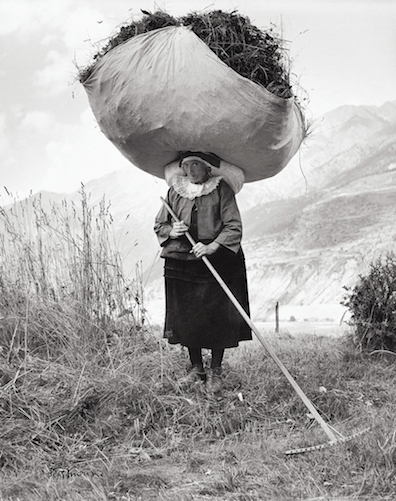"She trudges, schlepps, trains, drags, trascines her load":
for one brief moment in Proteus, Stephen exercises
his multilingualism in a single sentence, as if he is
contemplating forging a polyglot portmanteau of the sort that
Joyce strewed throughout Finnegans Wake. The verbs
all mean roughly the same thing, and they appear to refer to
the gypsy woman he is watching on the tide flats.
"Trudge" and "drag" are English, differing chiefly in that
one is intransitive (walking heavily along, as in exhaustion)
and the other transitive (pulling something heavy behind one).
"Schlepp" is German for dragging something or for trudging.
"Train" comes from French traîner, to drag something
or to lag behind. "Trascine" is from Italian trascinare,
to drag or (formed reflexively, trascinarsi) to drag
oneself along, lag behind.
Gifford suggests that "The reference is to Eve, whose load of
'sorrow' was 'greatly multiplied by the Fall (Genesis 3:16)."
But Genesis never calls Eve's suffering a load or
burden, and for "She" to refer to Eve, one would have to
assume some female personage in the previous sentence, which
evokes the exile from Eden
but never mentions either Eve or Adam.
The much more reasonable assumption is that "She" is the
gypsy woman that Stephen has been contemplating for a good
long while. She has "Spoils
slung at her back," and both she and her partner have already
been textually engaged in the first of these verb-actions: "Shouldering
their bags they trudged, the red Egyptians."
Just before Stephen searches for international synonyms for
"trudge" (perhaps inspired by these international travelers), he
has noticed one of them looking his way: "Passing now. / A
side eye at my Hamlet hat."
